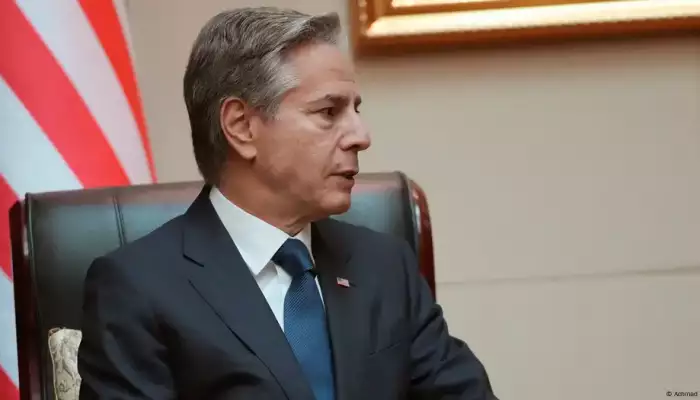
US Secretary of State Antony Blinken arrived in Laos on Saturday for a regional meeting and talks with his Chinese counterpart.
The visit is part of a multi-nation Asian tour aimed at strengthening US ties to the region in the face of an increasingly assertive Beijing. The trip will also see him visit Vietnam, Japan, the Philippines, Singapore and Mongolia.
During a series of the Association of Southeast Asian Nations (ASEAN) meetings, "the Secretary's conversations will continue to build upon the unprecedented deepening and expansion of US-ASEAN ties," the State Department said in a statement shortly before Blinken landed in Vientiane.
On the sidelines of the ASEAN foreign ministers' meeting in Vientiane, the top US diplomat is due to meet his Chinese counterpart, Wang Yi.
This is Blinken's 18th visit to Asia since taking office more than three years ago. The frequency of travel reflects the competition between Washington and Beijing in the region.
The US and China remain at odds over trade, human rights and the status of the self-ruled island of Taiwan, over which Beijing claims sovereignty.
The visit also comes two days after the foreign ministers of China and Russia met with the ten-nation ASEAN bloc, and each other, on the sidelines of the summit.
Wang and Russian Foreign Minister Sergei Lavrov had discussed "building a new security architecture for Eurasia" and agreed to jointly "counter any attempts by extra-regional forces to interfere in Southeast Asian affairs," according to the Russian Foreign Ministry.
The talks come at a time of high tensions in the South China Sea, where a series of clashes between Philippine and Chinese vessels have taken place on flashpoint reefs in recent months.
Tensions remain high between Manila and Beijing, despite an agreement last week to resupply Philippine troops stationed on a disputed reef.
Blinken is expected to "discuss the importance of adherence to international law in the South China Sea" at the ASEAN talks, according to the US State Department.
China claims nearly all of the waterway, despite an international tribunal ruling that its claim has no legal basis. Beijing has also insisted that the United States has "no right" to interfere in the South China Sea.